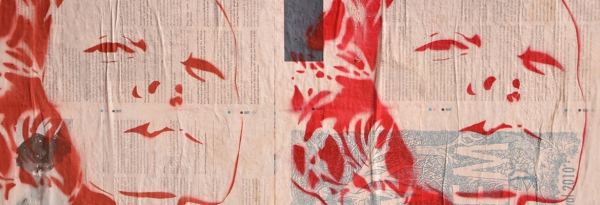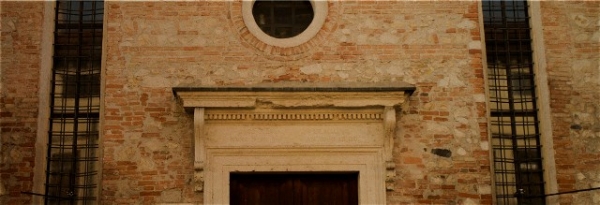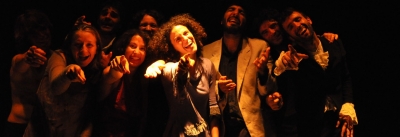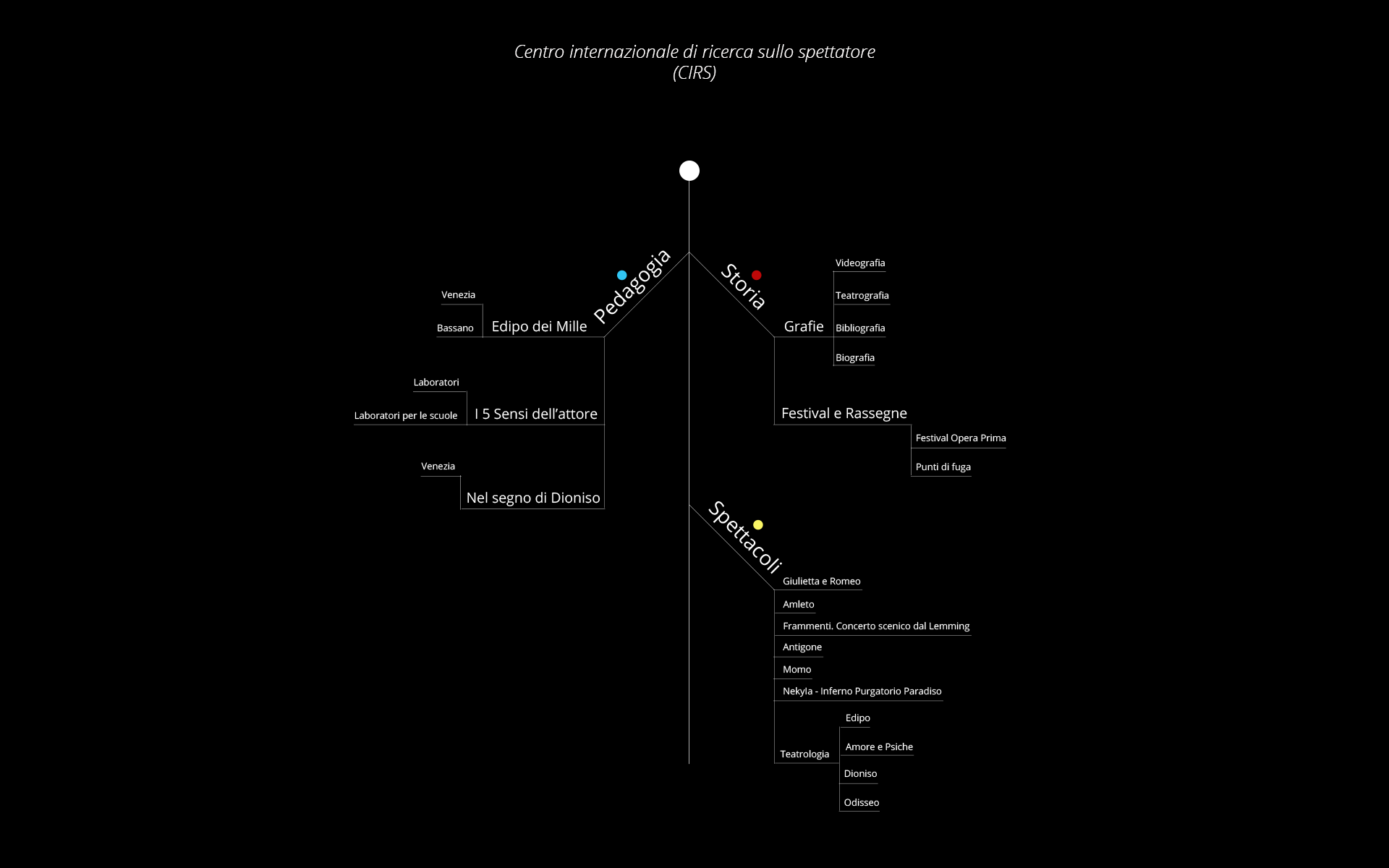PRODUZIONI E CO-PRODUZIONI
WELCOME PROJECT | 2015 - 2022
Welcome Project - The foreigner's theatre è un gruppo emergente nato nel 2015 da un'idea di Chiara Rossini. Il nome scelto per il gruppo sottintende una particolare visione del Teatro: Il Teatro è un luogo altro, governato da proprie regole e leggi, al suo interno siamo tutti stranieri alla ricerca di intimità e dignità.
Il primo lavoro è stato Intime Fremde/Intimi Stranieri, dedicato ad una riflessione sui concetti di confine, identità, cittadinanza, all'incontro/scontro di anatomie culturali ed emotive. Uno spazio in cui guardare in controluce le paure e i desideri di un'umanità divisa tra il bisogno di appartenere e quello di libertà. Lo spettacolo ha debuttato il 20 novembre 2015 all'Acker Stadt Palast di Berlino ed è prodotto dal Teatro del Lemming in collaborazione con Tatwerk Performative Forschung di Berlino, ha vinto l'edizione del 2017 del Festival Crash Test ed è stato nominato tra i migliori spettacoli del 2017 dalla rivista Krapp's Last Post.
Il Teatro del Lemming ha sostenuto anche la produzione di Angst vor der Angst.
Vai al sito del progetto.
BERNARDO CASERTANO | 2019 - 2022
Nasce a Caserta ma si trasferisce presto a Roma ove si diploma presso l'Accademia dei Cocci. Al Cinema ha recitato, tra l'altro, in Sulla mia Pelle e in Rocco Chinnici (nel ruolo di Paolo Borsellino). Firma come attore e regista, con un grande favore critico, Dino e Caligola-Assolo.1 spettacoli sostenuti dal Teatro del Lemming.
THIERRY PARMENTIER | 2015 - 2019
Thierry ha collaborato con il Teatro del Lemming sin dagli esordi del gruppo partecipando come attore agli spettacoli La città chiusa (1990) Cinque sassi (1994) Faust (1995). Nato a Bruxelles, ha danzato con i più grandi nomi della coreografia del XX secolo, come Joseph Russillo e Maurice Béjart. Negli anni ha costruito uno stile tanto indefinibile quanto riconoscibile, caratterizzato dalla fusione della tecnica con l’arte scenica, i costumi – che egli stesso disegna – la coreografia, la regia, l'arte del corpo e la mimica. Ogni elemento contribuisce a rendere le sue performance assolutamente uniche e coinvolgenti.
Dal 2015 il Teatro del Lemming sostiene alcune sue produzioni: Pinocchio, Il circo immaginario e In...contro.
DOYOUDaDA | 2018 - 2019
DOYOUDaDA è un collettivo artistico con base tra Venezia e Bordeaux dedicato all'arte performativa, video arte e installazioni. Il filo rosso che unisce le produzioni di DOYOUDaDA, tra arti performative e multimediali, è una ricerca costante sul linguaggio: l'equilibrio tra significante e significato, l'asimmetria tra immagine e suono, il confine tra realtà e rappresentazione.
Il Teatro del Lemming ha sostenuto la produzione di SELFIE / STICK
VICENZA - primavera 2016 AB23
Scarica il programma
IL CALENDARIO
dal 18 al 24 aprile 2016 residenza di
Alessandro Sanmartin e Anna Altobello
AB23, 25 aprile 2016 ore 21.00
Studio LAYOUT_Lo spazio c'è già
FARMACIA ZOO:E'
UNTIL THE END - primo studio
AB23, 20 maggio 2016 ore 21.00
AB23, dal 15 al 17 giugno 2016 residenza di
THIERRY PARMENTIER e COMPAGNIA "TREpieds"
AB23, 16 e 17 giugno 2016, ore 21.00
Studio IN-CONTRO
dal 9 al 11 maggio 2016, ore 21.00 e ore 22.00
TEATRO DEL LEMMING
CANTAMI ORFEO
spettacolo all'interno del Vicenza Jazz Festival
dal 30 maggio al 5 giugno 2016
repliche ogni trenta minuti a partire dalle ore 17.00
TEATRO DEL LEMMING
EDIPO. Tragedia dei sensi per uno spettatore
AB23, dal 10 al 12 giugno 2016, dalle 15.00 alle 20.00
TEATRO DEL LEMMING
METAMORFOSI
LABORATORIO I CINQUE SENSI DELL'ATTORE
AB23 è uno spazio aperto per prove, incontri e residenze teatrali. Gli studi e le aperture agli spettatori, vista la limitata capienza dello spazio, sono necessariamente previsti a prenotazione obbligatoria al numero 327 3952110.
NOTIZIE DI ARCHIVIO
Il Lemming approda Vicenza - leggi il comunicato stampa del 27 gennaio 2015
Comunicato stampa stagione settembre/dicembre 2015. Qui la brochure
Noleggio della sala - TEATRO STUDIO
Il Teatro Studio è aperto alle associazioni, alle Compagnie professioniste o amatoriali e, più in generale a tutti coloro che desiderano affittare la sala. Le tariffe, concordate con il Comune di Rovigo sono fissate a copertura minima dei soli costi di gestione. Il prezzo di affitto, pertanto, comprende le spese di apertura/chiusura e guardiania, pulizie.
Ad esclusione delle compagnie professionali di spettacolo, per tutti gli altri utilizzatori l'assistenza tecnica è obbligatoria.
|
Le ore di utilizzo extra che vanno oltre le 8 ore hanno un costo di € 30,00 / h.
A seguito della convenzione di gestione del 2016 siamo costretti, nostro malgrado, a differenziare i costi a seconda del periodo dell'anno in cui viene utilizzato il teatro. La quota, infatti, non comprende l'uso dell'impianto di riscaldamento e di raffreddamento, nè l'uso di attrezzature di proprietà del Teatro del Lemming. Il prezzo finale, pertanto, dovrà essere concordato secondo le esigenze di ciascun utilizzatore. Per le utenze richiederemo un rimborso forfettario di € 150,00
Per informazioni e prenotazioni chiamare al 0425 070643 oppure scrivere a This email address is being protected from spambots. You need JavaScript enabled to view it.
AMLETO
With: Fiorella Tommasini, Chiara Elisa Rossini, Diana Ferrantini, Mario Previato, Alessio Papa, Giovanni Refosco, Boris Ventura, Katia Raguso
Music and direction: Massimo Munaro
Scenic elements: Luigi Troncon
Awarded as Best Performance at Sarajevo Winter Festival 2013
“The time is out of joint. O cursed spite that ever I was born to set it right!...”
We think that Hamlet is the figure of ambivalence.
His indecision is full of anguish, but at the same time his dilly-dally permits the reflection on things, thinkings, conscience and aim.
As Hamlet questions himself through the tragedy, so the spectator has to find an answer to all these questions. The spectator has to become Hamlet.
Hamlet is a prince that refuse power and regality: is he a powerless coward or is he a lonely revolutionary? But is it possible to fight alone word horrors?
In Hamlet we find our solitude of spectators and of citizens. If is true that in a democracy every citizen should have the power, in this reality we are all Hamlet and we feel lonely and powerless as this prince of Denmark. If he is a prince, it’s just a question of inheritance. Like us, he is the heir of a noble power that is irreparably corrupt: “Something is rotten in the state of Denmark” and he has to complete his father’s destiny. Being a son, Hamlet’s destiny is to solve what his father left after his death.
First of all, Hamlet questions us over the problem of theatre: is theatre the place of shows, finction and hypocrisy or is it the way to trap spectators’ consciences?
Hamlet’s space is a theatrical space: is a space of dreams, where deads come back to torment the living and where the living could pacify themselves with the deads.
Teatro del Lemming's Hamlet is an event where the audience becomes like Hamlet, feeling his conflicts, his troubles and his madness.
Besides, Hamlet’s space is a metamorphic space, that fills up at the same time the stage and the stalls. Hamlet's space is a series of dreamy pictures that follows each other. Inside this space, the spectator/Hamlet gets lost, falling into consequential deep dreams where he meets the ghosts of the characters of the tragedy.
GIULIETTA E ROMEO. Letters from the liquid world
with Chiara Elisa Rossini, Diana Ferrantini, Fiorella Tommasini, Alessio Papa.
music Massimo Munaro
direction Chiara Elisa Rossini and Massimo Munaro
The liquid world of Zygmunt Bauman is our present time, a society under siege where everything seems to be precarious, temporary, changrable, without garantees and reassurances, where everything flows fast just in one track: the track of commercialization.
Where can we put Romeo and Juliet's myth in such this contemporary society, where, mentioning Bauman, also affection and love have lost their titanic and mythological power and has become liquid?
Who are Juliet and Romeo for us? Those youngsters are really so far from our lives? Are we able to sacrifice everything for something that is very important for us?
What are we willing to do to save our love?
The creative process cames from an assumtion of the psychoanalyst James Hillman: if our lives are mimetical of myth, fragments of myth are scattered also in humans' issues and lives.
The performance is composed by letters written to our loved one, to an hypothetical spectator, shreds of a present time where the solid dimension, the one of the myth, is not totally lost and where we can trace stories of a hindered desire, signs of a clear or a hidden violence, irreparable conflicts, an obstructed desire, the tenacity of a will that doesn't give up.
Juliet and Romeo. Letters from the liquid world is the second step of the Shakespearian Trilogy that is the current productive project of Teatro del Lemming.
A press review extract
ODISSEO. Travel in Theatre
with: Chiara Elisa Rossini, Diana Ferrantini, Alessio Papa, Fiorella Tommasini, Katia Raguso, Boris Ventura, Marina Carluccio, Silvia Massicci.
costumes: Genny
dramaturgical collaboration: Roberto Domeneghetti and Mariangela Dosi
music and direction: Massimo Munaro
In the end, the best way to travel is feel
feel everything in every way
After EDIPO, DIONISO and AMORE E PSICHE, the work on ODISSEO is the last stage of a project that is a tetralogy on the myth and the spectator.
In this performance the direct relation between actors and spectators is taken to a larger audience, while in the other three works there were less spectators (EDIPO for one person, DIONISO for nine people, AMORE E PSICHE for two).
So we have 33 spectators that are also only a single identity, the one of Odysseus, which, as the theatrical spectator has to be multiform. In this sense, the total perception of the event, also if considering the perception of the singles, is finalised to the total body of the spectators: that is the body of Odysseus.
Odysseus' body is wounded, but his wound is became a scar.
Odysseus' journey is circular and implies a departure and an homecoming: from Itaca to Itaca.
This journey develops not in a linear way, but in a synchronical way: everything happens at the same time.
Like in a dream. The Sea, as Theatre, hasn't got a "centre"; and the Sea, as Theatre, leaves no trace. But Theatre, as Odysseus' Sea, is the only place where we can meet our ghosts and where we can conquer our Itaca: the home where we can come back different but the same.
NEKYIA sea journey by night
INFERNO PURGATORIO PARADISO
with Diana Ferrantini, Chiara Elisa Rossini, Fiorella Tommasini, Alessio Papa, Katia Raguso, Massimo Munaro
drammaturgy, music and direction Massimo Munaro
dedicated to Roberto Domeneghetti
In Nekyia the dramaturgic work on Dante's Divina Commedia aims to a synthesis, trying to return, with an extreme and purified act, the complexity of a journey which contains a reflection on the psychological, political and moral condition of men and their world.
It's necessary to think about Dante as a citizen of a polis, his Nèkyia (in Greek sea journey by night or descent to hell) is a refoundation try of a ommunity. Because of that, we choose to give the identity and the role of the protagonist to a small spectators' group of seventeen people.
Proposing at this group of spectators a Nékya like this, on the way of Dante's Journey, is for us a new formulation of theatre language that aims at his essence of radical and transforming ritual. A rite that could question theatral laws till a reorganization of his foundations: actors and spectators. So spectators risk their role and their function: from the solitary initial passivity (Hell), to the trasformation (Purgatory) in actors of a joint play (Paradise).
The challenge for us is to think about theater today as the place of a joint and collective rite.
IL TEATRO COME NEKYIA
A print review extract
NEKYIA sea journey by night
First Part: HELL
with Alessio Papa, Diana Ferrantini, Chiara Elisa Rossini, Fiorella Tommasini, Katia Raguso
music and direction Massimo Munaro
dedicated to Roberto Domeneghetti
This work is the first part of a project called Nekyia (that in greek means sea journey by night or descent to hell). In the whole project there is the direct, dramaturgic and sensorial envolvement of a limited number of spectators (seventeen at time). Nekyia consists on a personal reflection on the three kingdoms of the underworld ( Hell, Purgatory, Paradise). The first part of that cycle, Hell, is a self-sufficient work that hasn't got a limitation of the number of spectators.
INFERNO is a scenic transcription of the first part of Dante's Divina Commedia that questions spectators and actors about themselves and their condition of citizens.
To one side, HELL is a sinking into the underworld, the unconsciousness and the dreamworld; to the other side is a reflection on contemporary world. In front of the horrors of contemporary world, spectators are left in a condition of silent powerlessness.
In this theatral work, Dante's Hell is considered in relation to contemporary world and the circles are performed throughout scenic pictures that follow each other: all the scenes appear to the spectators as rievocations of our personal damned world.
INFERNO aims to a reflection on the horrors of contemporary world. The work is a reflex of our human condition and, as a cruel mirror, this reflex cause on the spectator a revealing and healthy shock.
In NEKYIA, spectators risk their role and their function: from the solitary initial passivity (Hell), to the trasformation (Purgatory) in actors of a joint play (Paradise).
The challenge for us is to think about theater today as the place of a joint and collective rite.
THE PERFORMANCE HASN'T A LIMITATION OF THE AUDIENCE.
More...
ANTIGONE
with Fiorella Tommasini, Chiara Elisa Rossini, Diana Ferrantini, Katia Raguso, Mario Previato, Alessio Papa, Massimo Munaro
dramaturgy, music and direction Massimo Munaro
production Teatro del Lemming, La Biennale di Venezia
"Myth has never happened but is always living".
Thus is for Antigone. For hundreds and hundreds centuries, this myth has been rewritten, reconsidered and reread in endless ways. And in this myth Antigone's opposer, Creonte, is always linked to the young heroine.
On the one hand an alone young woman that has got the full weight of a humanity that must be protected, on the other a man who carries the weight of a law that must be respected.
When two fundamentalisms collide and do not bend, they destroy themselves.
This possibility of containing the opposites, of being a boundary line, that divides but also puts together different civilizations, is the most important characteristic of the Mediterranean Sea.
The Mediterranean is composed indeed by a multiplicity of voices, none of wich can choke the other: the penality, as happens in Antigone's tragedy, is the catastrophe for everybody.
Fundamentalisms are always more than one, but, as says Franco Cassano, is better thinking that "nowadays they have got just one shape, the one of the turban and of the suicidal martyrs. But what is fundamentalism? Isn't it the claim of exporting ones to the detriment of the differences of the others?"
In classical Greece, the origin of Mediterranean civilization, everyone has got his reasons: both Greeks and barbarians, both Antigone and Creonte.
The blue surface of the Mediterranean still reflects their figures: showing us the face of the other it shows us that that face isn't different from ours.
There's one thing of greek theatre that is disappeared from nowadays theatre: the central function of CHORUS. For the Greeks, the chorus was the polis' mirror, the polis' voice. The disappearance of the chorus points out the distance from the stage and the audience. Nowadays greek polis has become a globalized and fragmentary world. The polis is the world. But is a world where everything seems to be nearby while in reality is hopelessly distant. Is a world where everyone of us, as Antigone, could lose all rights of citizenship. Tensions bounce from one side of the globe to the other, creating neverended disasters.
They end up in the simultaneous barrage of images, merchandise, news, and they appear just a kind of entertainment, leaving us silent and powerless.
Here-hence starts Lemming's Antigone.
In Sophocles, the chorus of the old, paralyzed between the two main characters, sometimes sides Antigone and sometimes sides Creonte: it never knows how to decide. In Lemming's Antigone, the audience is the chorus that must decide: they could decide to side Antigone or to side Creonte. In Lemming's Antigone we have to decide, we have to take the tragic blame of a choice.
DIONISO E PENTEO. Tragedy of Theatre
with Alessio Papa, Boris Ventura, Diana Ferrantini, Katia Raguso, Fiorella Tommasini, Marina Carluccio, Silvia Massicci, Elena Fioretti.
scenic elements Ulrico Schettini e Martino Ferrari
assistant director Roberto Domeneghetti
music and direction Massimo Munaro
Sinopsys of the myth as is told in Euripide's BACCHAE
Dionysus (son of the god Zeus and of the human Semele, who is son of Cadmo, founder of Thebes) come back to Thebes, his hometown, as a foreigner and he's disowned by the young king Penteo (his cousin), who thinks that Dionysus' orgiastic rituals are dangerous for the ethics and for public order. And so, Dionysus is captured. As a result, Dionysus seduces Penteo and he guides him on Mount Kithairon, telling him that he could satisfied his longing of seeing Bacchae's orgies without beeing seen. But Penteo is discovered and torn to pieces by his mother Agave and the other Maenads. Dionysus realizes his terrible revenge.
Euripides' Baccanti, staging the god of theatre, Dionysus, could be considered a reflection on theatricalism and on theatrical crisis.
Theatre, under the sign of Dionysus, was essentially a reciprocal relation (“I see you while you see me”), a collective ritual where the telos was a dispersion of subjectivity that could bring to an osmosis with the divine. This relation is impossible in Euripides' tragedy. Here we've got a conflicting relation, a detached and voyeuristic gaze, that makes impossible any reciprocity, any real union. Tensions are polarized, refusing any conjunction. Agave and Pentheus are mother and son and they share the same hubris that lies in not recognizing their numinous side (Dionysus).
Between the hysteria that comes to the Bacchante Agave who does not recognize his child and tear him to pieces, and the need of rational order of Pentheus that wants to see without being seen (prototype of the modern spectator), there is an equal sign: both are unwitting tools of the god's revenge.
DIONISO E PENTEO can not be a fully and happily Dionysian show, because here the god is a god of revenge. Revenge against actors and spectators, polarized in a statute which, also if it may appear abolished, it will be reaffirmed just when it seems to reverse itself. Barriers are abolished just to restore them with more force, the boundaries that seems to be dissolved, in reality have always been there. Relational distorsion, that in this performance is carried to extremes, was created by the refusal to recognize the other in us by the rejection and denial of our deepest desires and instincts that come back to tear us when we refuse to recognize them.
In Lemming's performance the relation between actors and spectators is under the sign of human relations that, most of all, are conflicting and opposed.
The performance is for seven spectators at time (seven repeates a day). Duration of each reply: 35 minutes.
press review extract










